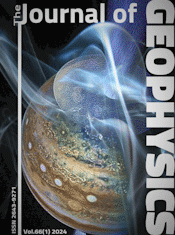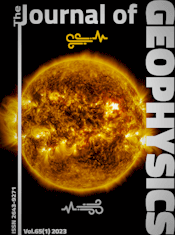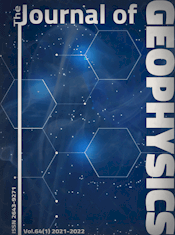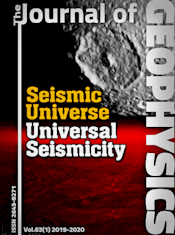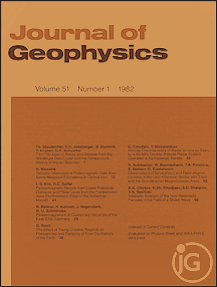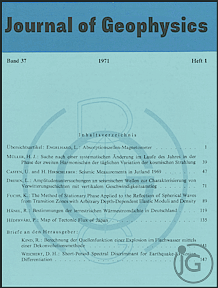The maximum entropy approach to inverse problems - spectral analysis of short data records and density structure of the Earth
Article Sidebar
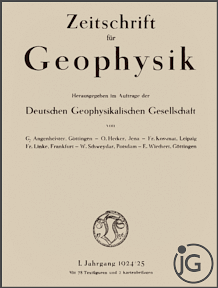
Vols. 1-18 (1924-1944), ISSN 0044-2801
Main Article Content
Abstract
The maximum entropy principle as described in the first, introductory part of the paper is applied to 2 problems: the estimation of the power spectrum from a finite number of values of the autocovariance function, and the determination of the density within the Earth from its mass, radius, and moment of inertia. In both cases the available information is given in terms of known values of linear functionals and the maximum entropy principle is used to derive a probability distribution for the values of the unknown function. The expectation value of the probability distribution for the spectral power is shown to be equal to the well-known maximum entropy power spectrum. The expectation value for the density within the Earth is in ― with respect to the few data used ― good agreement with that of accepted Earth models.
 ARK: https://n2t.net/ark:/88439/y025164
ARK: https://n2t.net/ark:/88439/y025164
Permalink: https://geophysicsjournal.com/article/87
Article Details
References
Akhiezer, N.I. (1956) Theory of approximation. Ungar, New York
Backus, G., Gilbert, F. (1967) Numerical applications of a formalism for geophysical inverse problems. Geophys. J. 13:247 276
Backus, G., Gilbert, F. (1968) The resolving power of gross Earth data. Geophys. J. 16:169-205
Backus, G., Gilbert, F. (1970) Uniqueness in the inversion of inaccurate gross Earth data. Phil. Trans. Roy. Soc. London, Ser. A 266:123 192
Bullen, K.E. (1975) The Earth's density. Chapman and Hall, London
Cook, A.H. (1971) The dynamical properties and internal constitutions of the Earth, the Moon, and the Planets. Quarterly J. Roy. astron. Soc. 12:154-168
Edward, J.A., Fitelson, M.M. (1973) Notes on maximum entropy processing. IEEE Trans. Inf. Theory (Corresp.). IT-19:232-234
Jaynes, E.T. (1968) Prior probabilities. IEEE Trans. Systems Sci. Cybern. SSC-4:227-241
Jensen, O.G., Ulrych, T.J. (1973) An analysis of the perturbations on Barnard's star. Astron. J. 78:1104·1114
Kanasewich, E.R. (1975) Time sequence analysis in geophysics. 2nd ed. The University of Alberta Press, Edmonton, Alb. Canada
Khinchin, R.T. (1957) Mathematical foundations of information theory. Dover Publications, New York
Papoulis, A. (1973) A new class of Fourier series kernels. IEEE Trans. Circuit Theory CT-20:101-107
Parker, R.L. (1972) Inverse theory with grossly inadequate data. Geophys. J. 29:123-138
Phillips, J.D., Cox, A. (1976) Spectral analysis of geomagnetic reversal time scales. Geophys. J. 45:19-33
Rao, C.R. (1965) Linear statistical inference and its applications. Wiley, New York
Rawlinson, I.S. (1970) Probability, information and entropy. Nature 225:1196-1198
Smylie, D.E., Clarke, G.K.C., Ulrych, T.J. (1973) Analysis of irregularities in the Earth's rotation. Methods Computat. Phys. 13:391-430
Ulrych, T.J. (1972) Maximum entropy power spectrum of long period geomagnetic reversals. Nature 235:218-219



